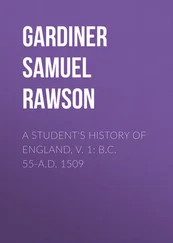George Gardiner - A Forbidden History.The Hadrian enigma
Здесь есть возможность читать онлайн «George Gardiner - A Forbidden History.The Hadrian enigma» весь текст электронной книги совершенно бесплатно (целиком полную версию без сокращений). В некоторых случаях можно слушать аудио, скачать через торрент в формате fb2 и присутствует краткое содержание. Жанр: Исторические приключения, на английском языке. Описание произведения, (предисловие) а так же отзывы посетителей доступны на портале библиотеки ЛибКат.
- Название:A Forbidden History.The Hadrian enigma
- Автор:
- Жанр:
- Год:неизвестен
- ISBN:нет данных
- Рейтинг книги:5 / 5. Голосов: 1
-
Избранное:Добавить в избранное
- Отзывы:
-
Ваша оценка:
- 100
- 1
- 2
- 3
- 4
- 5
A Forbidden History.The Hadrian enigma: краткое содержание, описание и аннотация
Предлагаем к чтению аннотацию, описание, краткое содержание или предисловие (зависит от того, что написал сам автор книги «A Forbidden History.The Hadrian enigma»). Если вы не нашли необходимую информацию о книге — напишите в комментариях, мы постараемся отыскать её.
A Forbidden History.The Hadrian enigma — читать онлайн бесплатно полную книгу (весь текст) целиком
Ниже представлен текст книги, разбитый по страницам. Система сохранения места последней прочитанной страницы, позволяет с удобством читать онлайн бесплатно книгу «A Forbidden History.The Hadrian enigma», без необходимости каждый раз заново искать на чём Вы остановились. Поставьте закладку, и сможете в любой момент перейти на страницу, на которой закончили чтение.
Интервал:
Закладка:
George Gardiner
A Forbidden History.The Hadrian enigma
Hadrian Enigma — A Forbidden History is fiction based upon an incident recorded by historians of the ancient world. It is a novel elaborating on the suspicious death of Antinous, the favorite of Caesar Hadrian, emperor of Rome, reported at the River Nile in Egypt in 13 °CE.
This novel's events, cultural ambience, and characters reflect recorded history. Several characters and circumstances are entirely fictional.
".. the noble lover of beauty engages in love wherever he sees excellence and splendid natural endowment, without regard for any difference in physiological detail."
PlutarchPROLOGOS
In the 13th Year of Imperator Caesar Divi Traiani filius Traianus Hadrianus Augustus. (Hadrian, ruled 117-138CE)
Stop now. Cease immediately. You are at risk. If you intend reading this history, take great care. Caesar will not be pleased. Hadrian may exile you to some bleak rocky outcrop dashed by stormy seas if he learns of it. Or worse. Reconsider while yet you may.
However, if juicy morsels of gossip have reached your ears and you cannot help yourself, then be it on your own head. You now share in my own plight.
This saga came to its climax three months ago. Its culmination struck Caesar's traveling Household at the dawn of one of those bleached-out, white hot, stupefying days so common in Egypt. In the molten miasma of liquid heat that morning three months ago his Court's communal bloodstream froze to ice, as they say.
An unexplained death at Court is a sobering matter. The death of a young, vital, handsome favorite augurs even greater concern. What is to be made of it, we wondered?
Three months later my anxiety escalates. My head is now forfeit. Hadrian does not forgive my revelations before his Court. They were truly embarrassing. His reputation for machismo as a Roman Imperator was exposed to view for what it really is. Yes, Caesar's loving tenderness was revealed. Tenderness is a sentiment an Imperator deems it unwise to disclose.
This is the path of my chronicle's journey. By the grace of Fortuna, I hope these words will persuade Hadrian of the integrity of my actions that fateful day. May they fix my head more securely to my body.
Greetings dear reader, whoever you may be.
Your writer is Gaius Suetonius Tranquillus, renowned lawyer and alleged playboy of Rome. 'Alleged' because all Rome assumes I have been notably successful in a Roman male's obligatory career of lively priapic endeavor.
However in this thirteenth year of Caesar's rule I will have seen a full sixty winters. This means I am six years older than Hadrian. Being no spring chicken, my alleged priapic activities wane alarmingly.
My patron and friend of the past twenty years, Gaius Septicius Clarus, the well-known senator and one-time Prefect of the Praetorian Guard, has kindly assigned me a suite at his luxurious villa at Alexandria. Here on Caesar's behalf I am under house arrest until Hadrian decides what to do with me. As a member of the eques class at least I know what my worst fate may be — a swift beheading or permission to suicide somewhat less messily.
In the meantime I gather my thoughts onto paper about the recent journey through Egypt. These thoughts will either save my neck or make it even less secure. While the memory remains fresh I must record the fate and subsequent apotheosis of the young man at the center of its most disturbing event, Antinous of Bithynia. To some he was Caesar's beloved companion and Favorite; to others a mere catamite, a toyboy, a typical Greek hustler on the make.
I have written several admired histories for the Empire's book copiers and their readers. I am best known for my Lives of the Caesars. Perhaps you too know of it? There I show in eight scrolls all I have learned of our first Caesar, Julius, and the following eleven Caesars from Augustus to Domitian. That last monster ruled in my youth at much cost to the lives of members of my family.
In my Lives I tried to tell of Rome's rulers as they truly were. It has not always been a pretty picture, dear reader, but as you may perceive, I am up to the chore. I leave no unsavory stone unturned, no scandal unexplored. If a Caesar proved to be boring, I might even invent a little.
Thirteen years ago on Hadrian's succession to the role of Princeps he appointed Septicius to be his Prefect of the Praetorian Guard. I was then appointed to be the Director of imperial correspondence. For five years I was active at the very center of imperial affairs. No letter, official document, edict, or warrant in Latin or Greek went to the far reaches of the Empire without my oversight.
After some time Hadrian's wife, Vibia Sabina the Augusta, declared Septicius and I to have insulted her. Sabina is a strong-willed woman, so she cleverly engineered a charge of laesa majestas against us and our subsequent dismissal. Hadrian was obliged to agree with his wife's claim for public form's sake.
It's well known no love is lost between the Imperial couple. Nevertheless both show proper conformity to their marital obligations. After all, he is our Princeps, the First Citizen, who leads us all by example.
Hadrian leads in most things except perhaps in the matter of whelping progeny to populate the Empire or stock the Legions with fighting sons. He and Sabina have bred no children.
Hadrian wed his arranged bride at the usual age when he was twenty-five. As usual, Sabina was thirteen. They do not sleep together. I doubt they have much in common other than their unlikely coupling by the strategies of the imperial succession.
She has been heard to say her husband is a monster! though she never defines her meaning. She swears she will never bear him a son. And she hasn't. Nevertheless despite their mutual antagonism the two maintain a prudent public comportment as the Princeps and his respectful wife. They are role models for all Romans.
My books of Lives of the Caesars focused upon the acquisition of power by the emperors, their uses of that power, and their abuses of power. Of the first twelve Caesars I revealed how only Julius and three of the remaining eleven retained their moral authority.
However, in recording the sexual orientations of all fifteen Imperators up to this very day, the tally declines to but two recognized for their common, garden-variety disposition. The remaining thirteen sought opportunities to be erotic innovators of considerable invention, if not outright ingenuity.
The remote province of Bithynia has been a prominent source of this inventiveness. Earlier when I was secretary for two years to Rome's ambassador at this backwoods colony on the edge of the Black Sea, I experienced its wild, exotic culture at close hand.
Bithynia seems a place before memory; a place intoxicated with time's open endlessness. Antique gods, demons, nymphs, or sprites of the forests, waters, skies or inner perceptions seem close to us at Bithynia. They challenge our very sanity. Sacred rites and holy oaths are essential to placate their feverish spirits. Strange, crude, brutal superstitions are veiled behind the token adoration of our sacred Pantheon or the honoring of our Deified Emperors.
Vestiges of customs from some ancient epoch survive beneath today's normality, often undermining its validity. Ordinary assumptions become blurred, diffuse, flexible, shifting the barriers of understanding in unexpected or disturbing ways.
Male and female categories too become malleable, diaphanous, interchangeable, obverse sides of the same coin. In this heady climate the portals of license open wide. Vistas of voluptuous sensuality arise before us. Bithynia disturbs, shocks, and thrills simultaneously.
As you well know, a Roman male's function is to subjugate, dominate, and penetrate. This has always been the victorious Roman way. Romans conquer and subdue compelled by their driven virility. Manhood is defined by the right to have sex — that is, to dominate and penetrate, or in earthier terms, to fuck, if you forgive honest Latin — whether it's with a woman or a man, a mature youth, a slave, an enemy, or a business opponent, though perhaps reluctantly metaphorically in the latter. Some say we Romans have an unimaginative sexual agenda. Others say we are immoral, wanton, crude fornicators.
Читать дальшеИнтервал:
Закладка:
Похожие книги на «A Forbidden History.The Hadrian enigma»
Представляем Вашему вниманию похожие книги на «A Forbidden History.The Hadrian enigma» списком для выбора. Мы отобрали схожую по названию и смыслу литературу в надежде предоставить читателям больше вариантов отыскать новые, интересные, ещё непрочитанные произведения.
Обсуждение, отзывы о книге «A Forbidden History.The Hadrian enigma» и просто собственные мнения читателей. Оставьте ваши комментарии, напишите, что Вы думаете о произведении, его смысле или главных героях. Укажите что конкретно понравилось, а что нет, и почему Вы так считаете.












